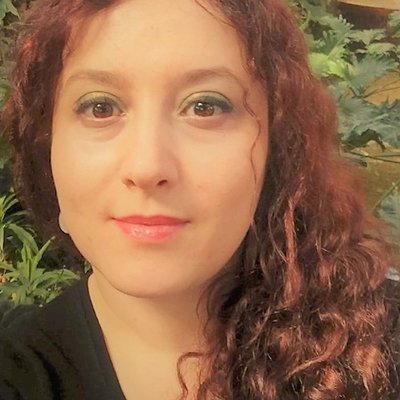The Unpredictable Life in Turkey for Dissidents, Political Activists, and Journalists
Aziz Oruç, Safiye Alagaş, Serdar Altan, Mehmet Ali Ertaş, Ömer Çelik, Neşe Toprak, Mehmet Şahin, Zeynel Abidin Bulut, Elif Üngör, Remziye Temel, Suat Doğuhan, Lezgin Akdeniz, İbrahim Koyuncu, Abdurrahman Öncü, Ramazan Geciken, Mazlum Güler. These are the names of sixteen Kurdish journalists and media employees who, in the province of Diyarbakir, have been imprisoned for over two months with no indictment against them.
On June 8, Turkish police raided homes of several journalists and offices of news outlets. Twenty-two people, including 20 journalists, were detained. After eight days of detention, a panel of judges approved the arrest of 16 of the journalists on “terrorist propaganda” charges, citing their news reports and social media posts as evidence.
Resul Temur, an attorney for the journalists, told Bianet that no formal indictment has been made and there is no reason for the arrests. He added that the case file was classed as confidential, and the right to a fair trial was violated. These are routine practices in a country where there is no free speech or veritable constitutional law.
The news outlet Jinnews, where some of the journalists worked, and the production companies Pel, Ari and Piya, were also raided by police. A lot of equipment was seized during the raids.
Gülsün Altan, a journalist and the wife of Serdar Altan, the co-head of the Dicle Fırat Journalism Association (DFG), who is among the 16 detained journalists, said that family members wanting to visit the prisoners were forced to undress during searches.
The government of Recep Tayyip Erdogan has long been launching a tyrannical campaign against dissident journalists and activists in Turkey. MedyaNews reported on July 1:
“A court in Diyarbakır has sentenced Kurdish photojournalist Abdurrahman Gök to 18 months in prison for ‘terrorist propaganda’ over photographs he took in northern Syria in recent years, and also during Newroz celebrations in 2017, Mezopotamya Agency reported. Gök had captured on camera the moment Kemal Kurkut, a 23-year-old arts student, was killed by police officers at a check point as he entered the celebration grounds for the Newroz celebrations.”
The police officer who murdered Kurkut was acquitted.
As the 2023 presidential elections are approaching, the Turkish government is escalating its aggression against dissident journalists, human rights defenders, and Kurdish political activists in the country.
On April 25, for instance, a Turkish court sentenced Osman Kavala, a prominent civil rights activist and philanthropist, to life imprisonment for “attempting to overthrow the government.” The court also sentenced seven other human rights defenders to jail for 18 years each on charges of attempting to bring down the government.
On April 14, a retired Kurdish teacher was arrested “for terrorist propaganda” on his social media account. Mehmet Ipek, 58, a teacher of Turkish language and literature for 34 years, was arrested on April 14 for his social media posts about Kurdish people and Kurdish political movement. In one of his posts, he writes in both Kurdish and Turkish, “Good morning, Kurdistan. Good morning, Turkey. Good morning to us.” Ipek was released from prison in May, pending trial. Prosecutors demand up to five-years imprisonment for him for “making terrorism propaganda.”
In fact, Turkish jails are filled with political prisoners arbitrarily and unjustly arrested – particularly Kurds who request equal national rights. In the first six months of 2022, at least 1,800 Kurds were taken under police detention for political reasons, reported the Ozgur Politika newspaper. 260 of them were arrested. Among the targeted are Kurdish cultural centers. A police raid was carried out on the Binevş Culture and Art Association in Adana and the Dicle Culture and Art Association in Diyarbakir on June 27. Arrest warrants were issued for 38 people, and 37 of them were jailed.
Another major detention campaign targeting Kurdish dissidents was started by the Turkish government on April 14, 2009 after the pro-Kurdish Democratic Society Party (DTP) won 98 mayoral seats in local elections. At least 7,748 deputies, mayors, politicians, human rights defenders, lawyers, academics, writers, and journalists were detained by police until late 2012. Sadullah Ergin, then Minister of Justice, said in his response to a parliamentary motion that 38,135 people were on trial for “being members or executives of a terror organization” between 2009 and 2012. Dozens of people were sentenced to thousands of years in prison. Some of the main cases are still pending, even after years, reported the newspaper Yeni Ozgur Politika.
Other examples of mass detention campaigns targeting Kurds include:
During the curfews announced between 2015 and 2016 in majority-Kurdish southeast Turkey, thousands of Kurds were detained and arrested. Many of them were given severe punishments totaling thousands of years.
In 2016, 12 deputies, including former HDP (Peoples’ Democratic Party) co-chairs Selahattin Demirtaş and Figen Yüksekdağ, were arrested on terrorism charges. Nine were jailed. Demirtaş and Yüksekdağ, who defend a peaceful resolution to the Kurdish issue, remain in jail to this day.
Civil society has also been a target of wide detention campaigns. The homes of the members of the Association for Assistance with the Families of Prisoners (TUAY-DER), for instance, were raided on June 9, 2020. Seven of the 22 detainees were arrested and jailed.
Another pro-peace and pro-Kurdish organization, Democratic Society Congress (DTK), established in Diyarbakir in 2007, whose representatives had been invited to the Parliament for constitutional negotiations, was also targeted by the government. DTK membership became a crime for thousands of people. As part of the investigation carried out against the DTK, arrest warrants were issued for 64 people on 26 June 2020. During the house raids, 45 people were detained and 23 of them were arrested. DTK’s building in Diclekent was raided and its door was sealed.
On September 25, 2020, detention warrants were issued for 82 Kurdish politicians after thousands took to the streets to protest ISIS’s attack on the Syrian city of Kobane (Kobani) on October 6-8, 2014. The number of detainees later rose to 108. The trials which have come to be known as “Kobane trials” are ongoing.
Turkish government officials would typically “explain away” such arrests by saying all the detainees are either terrorists or terrorist supporters. They would say that even if those arrested are not guilty of violence or homicide, they promote terrorism by their writings, activities, and propaganda.
Is this true? Are all these thousands of civilians including journalists and politicians in prison because they are terrorists, or is it because the Turkish government is allergic to even the mildest dissent and critical thinking?
Ever since the founding of the Republic of Turkey in 1923, the country has struggled to create a democratic environment where citizens feel free to exercise independent thought and engage in open public debate about historical and current issues. Those who challenge the taboos or cross the “red lines” of the Turkish state – such as evoking the 1915 Christian genocide, the Kurdish issue, or Islam – have invariably found themselves in trouble. They either end up in prison, in exile, or dead. Yet Erdogan’s regime has taken this tyranny to a higher level and molded the country into a virtual prison for anyone who dares even question its policies.






